Abstract
A generalized discrimination of /er/ and /est/ suffixes as labels for stimuli exemplifying comparative or superlative relationships was established in three institutionalized retardates through differential reinforcement. The subjects were first taught correct pointing in response to opposite adjectives (e.g., “big—small”) presented as labels for simple visual stimuli, and then taught each of the comparatives, or each of the superlatives possible for those opposites (e.g., “big—bigger” and “small—smaller”, or “big—biggest” and “small—smallest”). As training proceeded, novel combinations of the training stimuli were presented as unreinforced probes to display any developing generalization of the training. As training of comparative discrimination proceeded, correct pointing response to comparative probes was high, but correct response to superlative probes was low. When training of superlative discriminations replaced training of comparatives, correct response to superlative probes increased, and correct response to comparative probes remained high.
Full text
PDF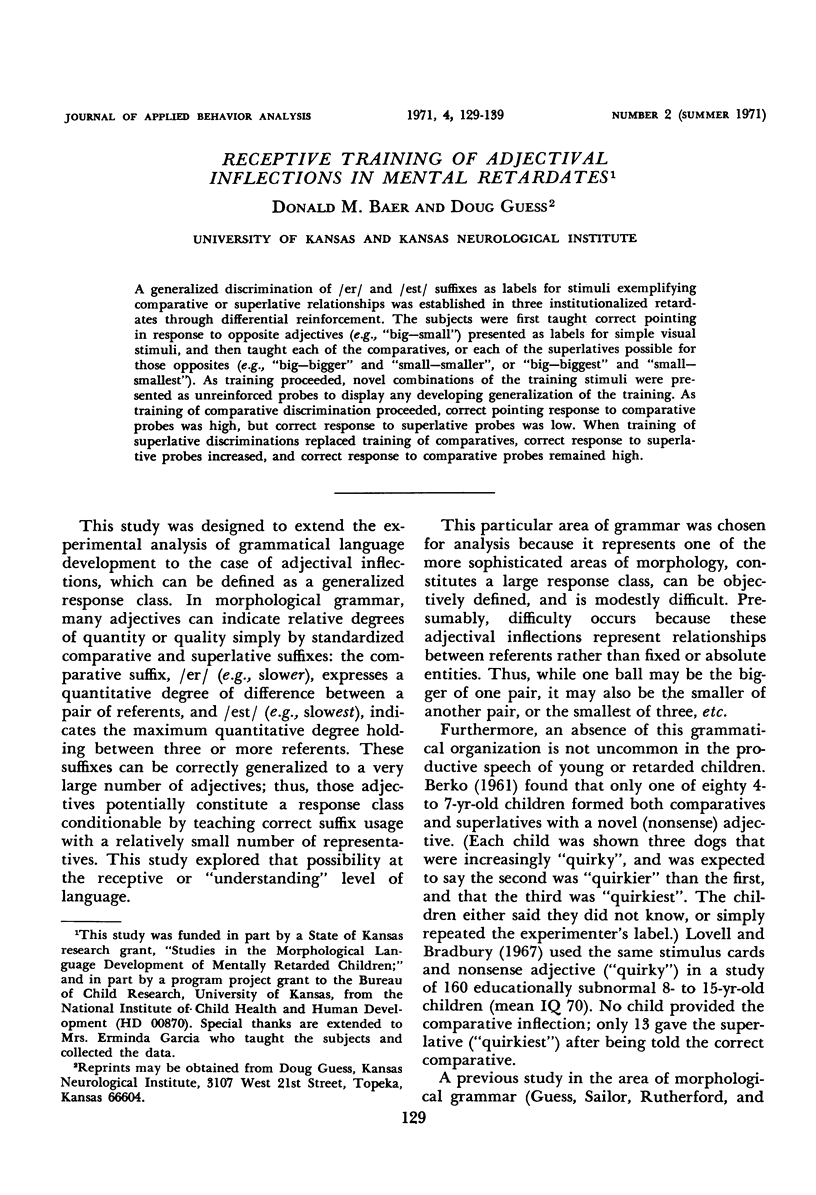
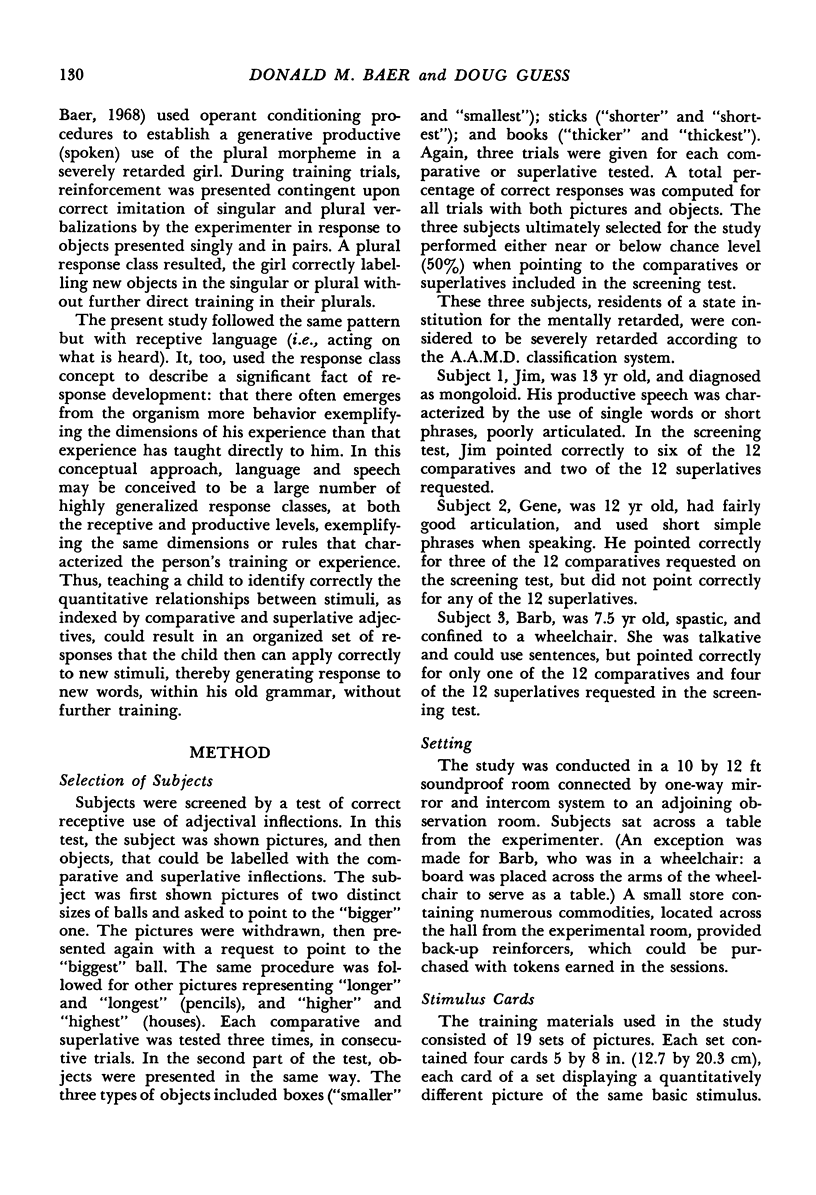
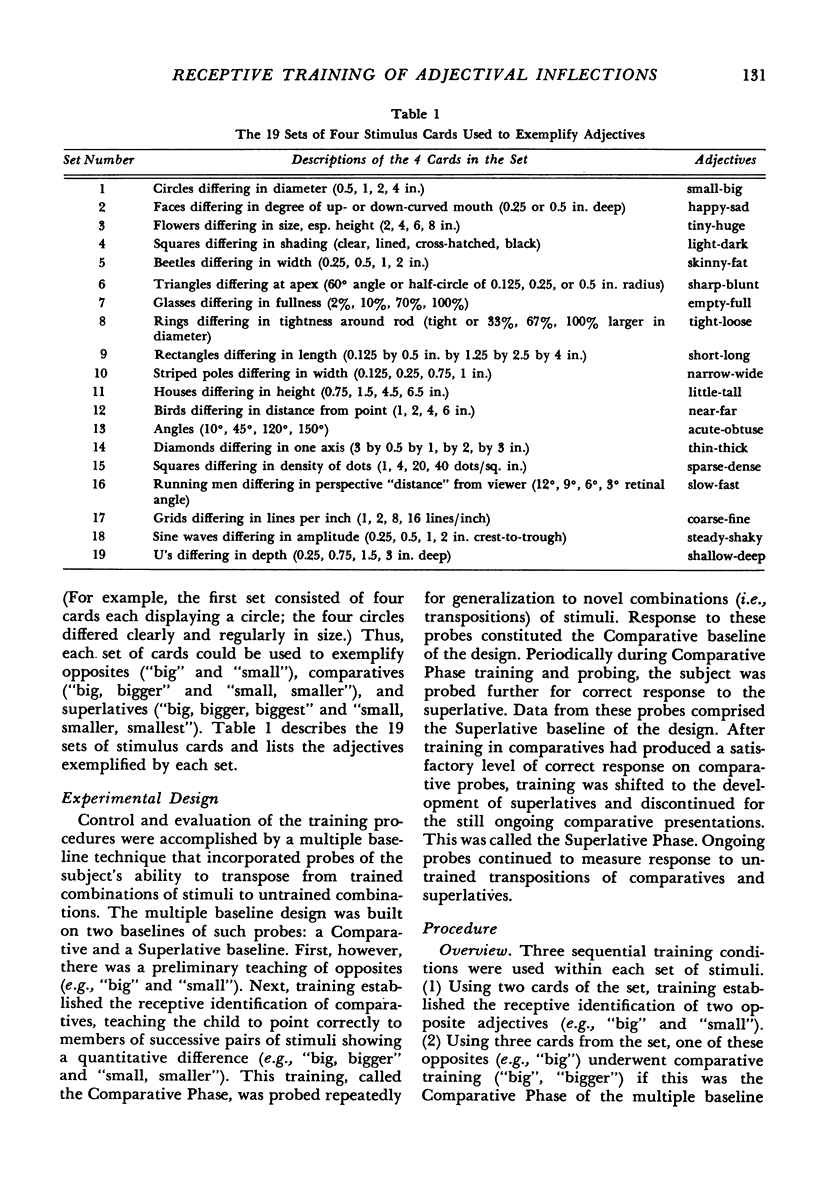
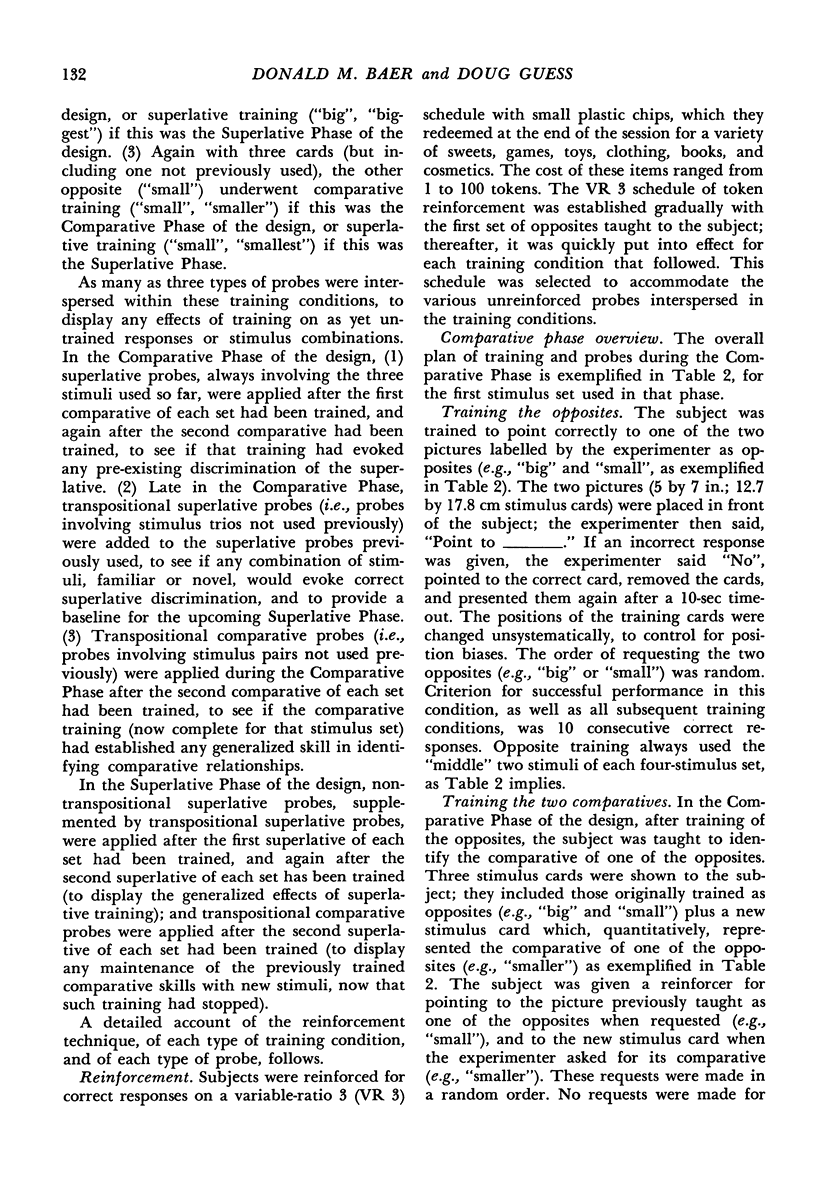
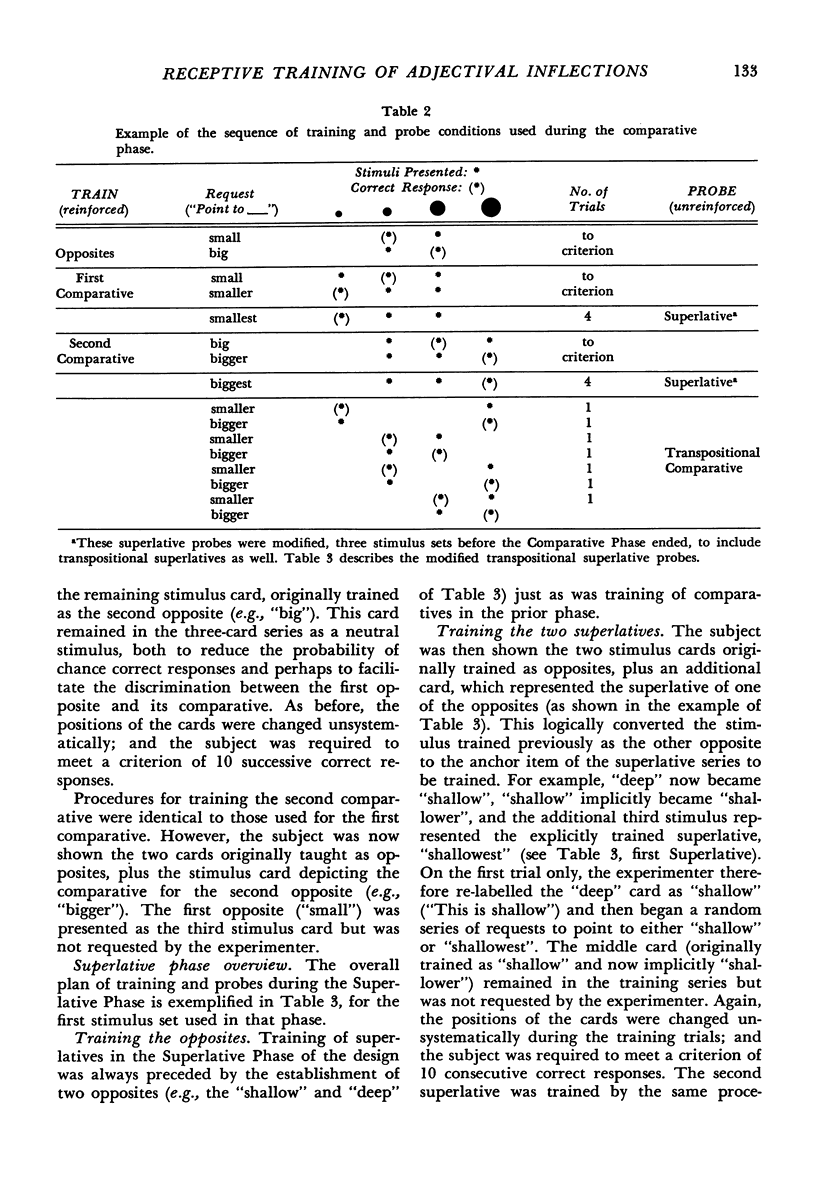
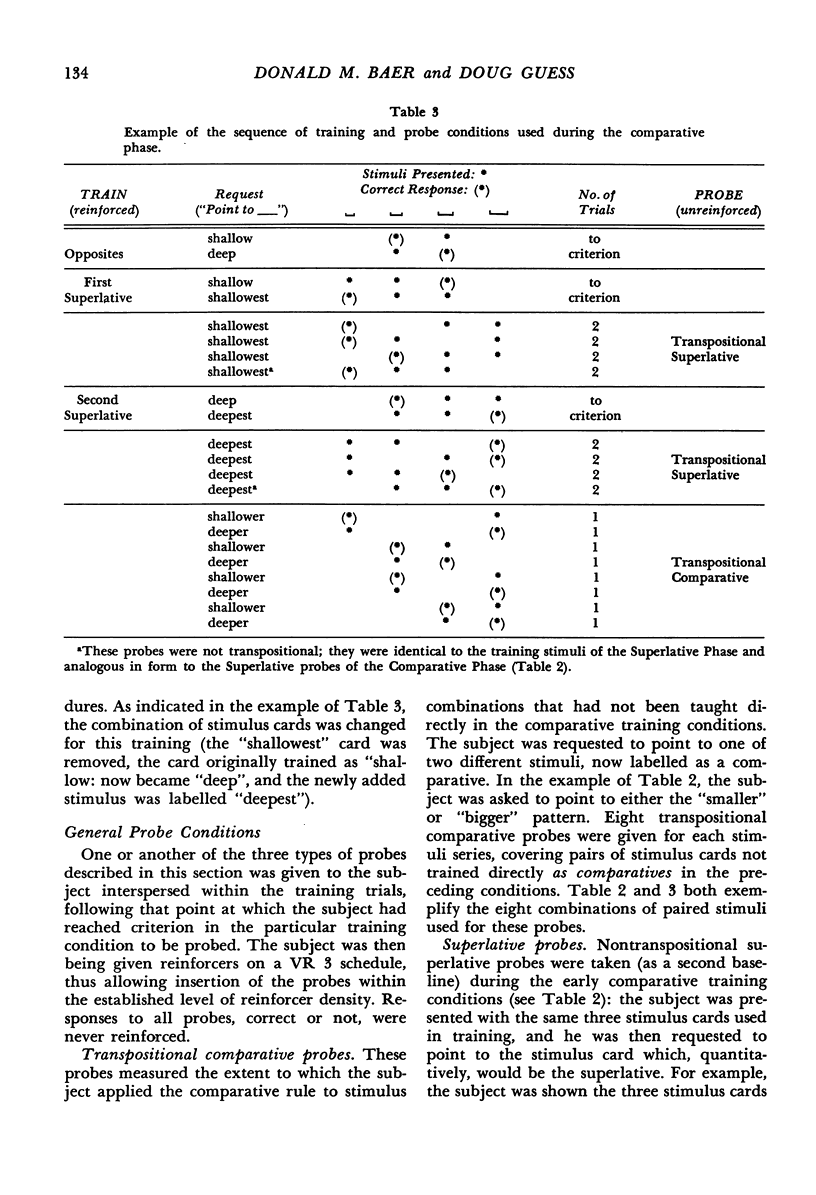
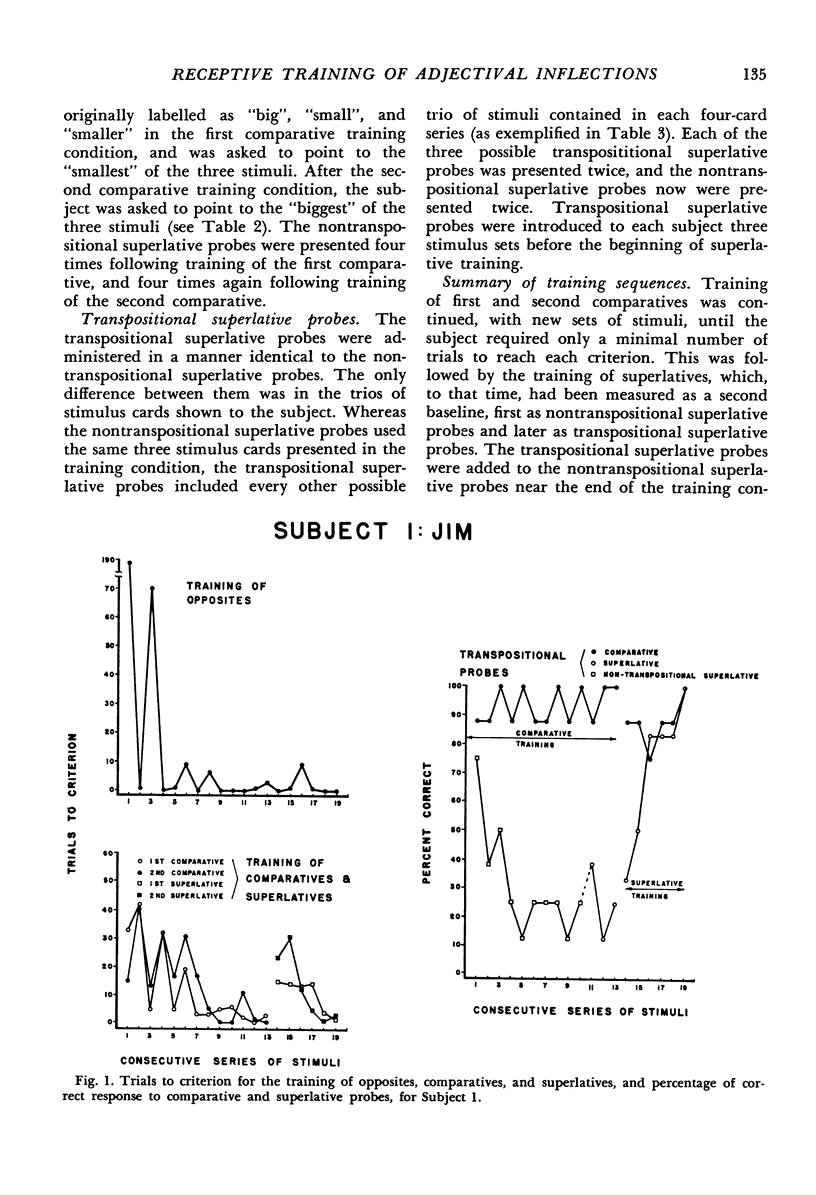
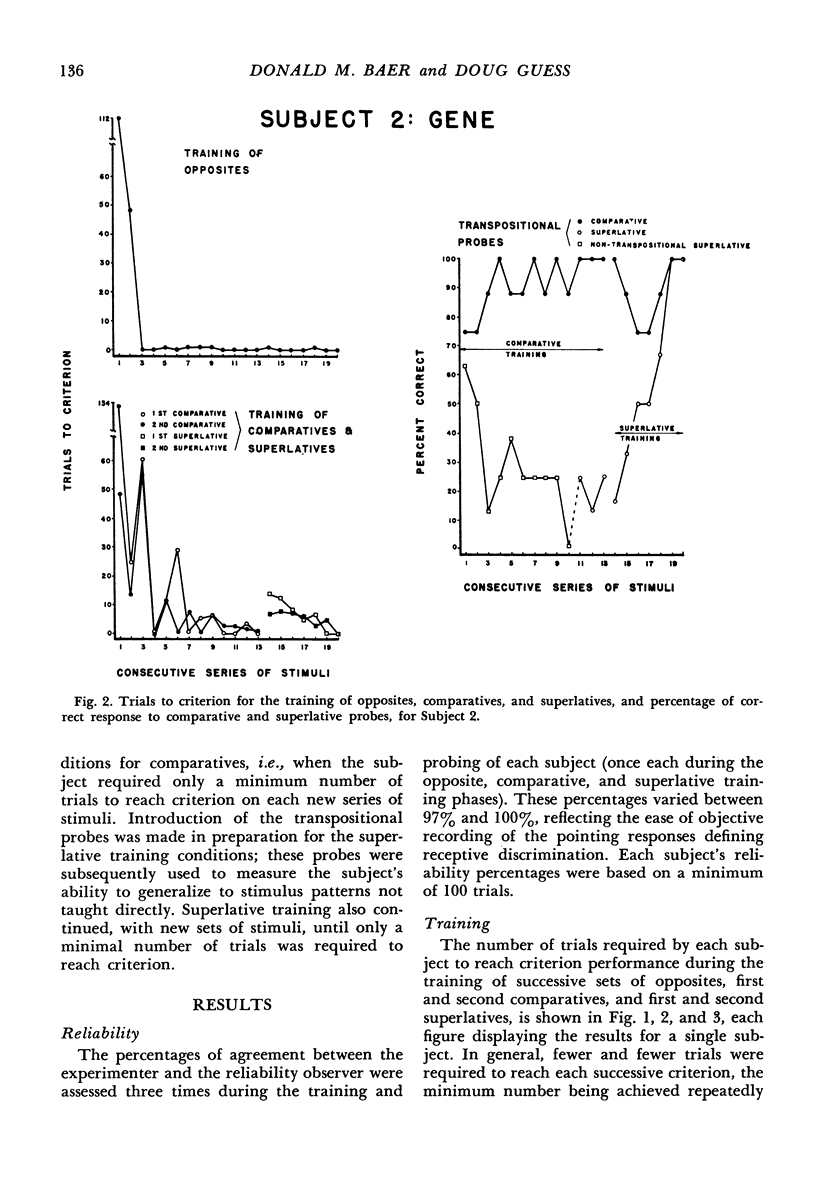
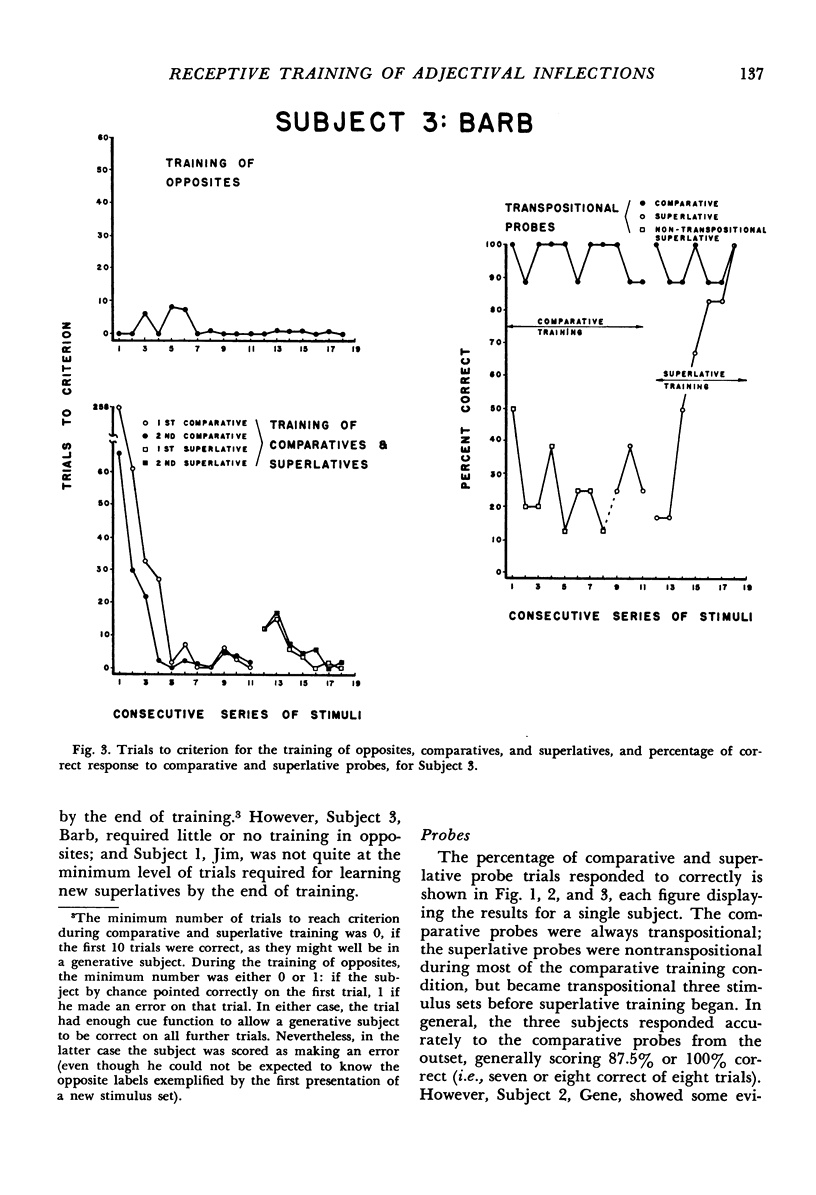
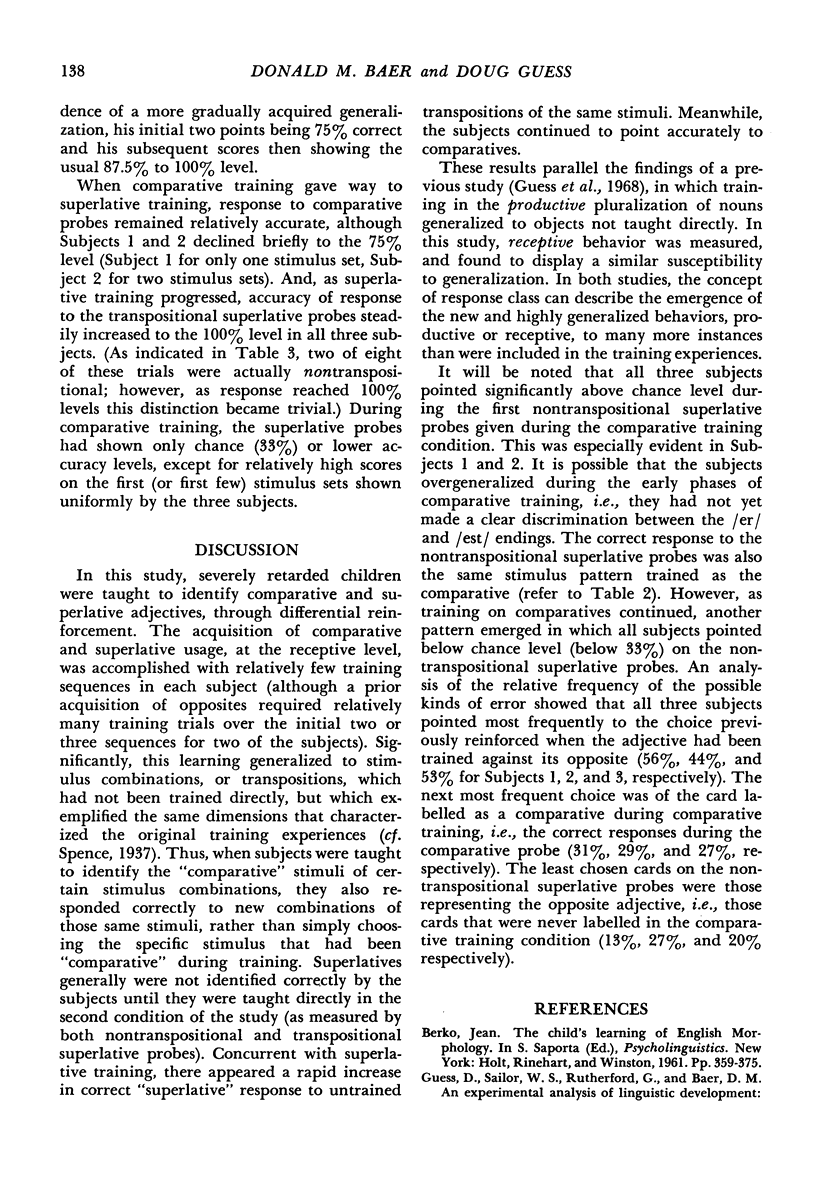
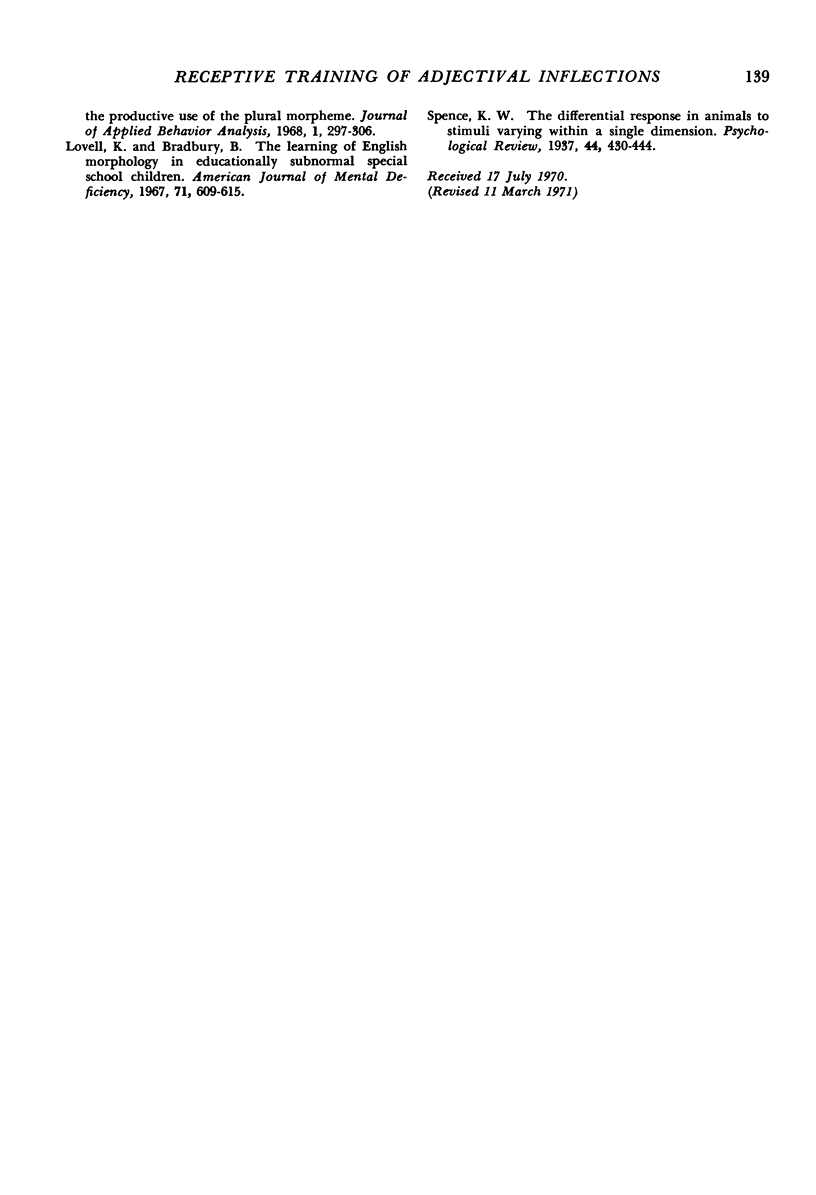
Selected References
These references are in PubMed. This may not be the complete list of references from this article.
- Guess D., Sailor W., Rutherford G., Baer D. M. An experimental analysis of linguistic development: the productive use of the plural morpheme. J Appl Behav Anal. 1968 Winter;1(4):297–306. doi: 10.1901/jaba.1968.1-297. [DOI] [PMC free article] [PubMed] [Google Scholar]
- Lovell K., Bradbury B. The learning of English morphology in educationally subnormal special school children. Am J Ment Defic. 1967 Jan;71(4):609–615. [PubMed] [Google Scholar]


